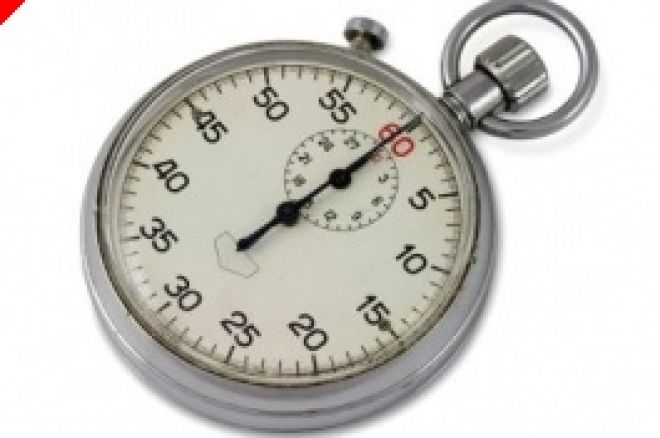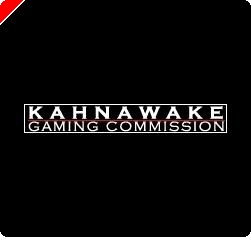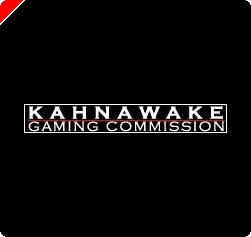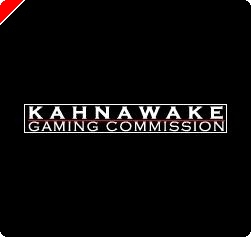Absolute Poker, UltimateBet Scandals Featured in '60 Minutes', Washington Post Pieces

A cooperative mainstream investigatory piece offering an overview of the Absolute Poker and UltimateBet insider cheating scandals was aired by "60 Minutes" and published by the Washington Post on Sunday, though it shed little new light on a situation already familiar to many dedicated online players. The twin efforts from the two mainstream outlets rehashed the work of online players who uncovered the cheating over the past year, though the reports differed widely in their approach to the story.
The Washington Post piece, which was the first to go public on Sunday morning, began with a relatively accurate examination of the discovery of the cheating by players' examination of hand histories, then painted a less than rosy picture of what it inferred was a lax regulatory environment that allowed the cheating to occur. The "60 Minutes" segment hosted by Steve Kroft followed a similar track but did so in a far more sensational manner, skimming many of the facts in the scandals themselves while becoming a superficial, politically themed fingerpointing, yet without connecting the dots or exploring the regulatory issues involved.
Both pieces �C but in particular the "60 Minutes" segment �� threw generalized aspersions toward the Kahnawake Gaming Commission, the licensing and regulatory agency that oversees some 450 online gambling sites and is primarily housed on the Kahnawake reservation outside Montreal. Kahnawake Grand Chief Michael Arihron Delisle was featured in the "60 Minutes" segment in a brief interview that hinted at the regulatory and legal disputes between the sovereign Kahnawake nation and Canada, which surrounds it, but those and other regulatory matters were not explored in detail. In fact, the regulatory and legal-recognition matters promised by "60 Minutes" to be a focus of the story were summarily dropped by air time, leaving only the sensationalistic aspects of the combined cheating scandals, which together exceeded $20 million in player funds, to be aired.
Also dropped from the "60 Minutes" piece were filmed interviews with several prominent poker players and officials, including Mike Sexton, Linda Johnson and Greg Raymer, who were interviewed together during the World Series of Poker this past summer. The broadcast did show segment host Steve Kroft walking the Amazon Room during the WSOP, where the CBS crew filmed segments with several online players that did make it to broadcast. The online players who received air time in the piece were Serge Ravitch, David Paredes, Todd Witteles and Michael Josem, each of whom was involved in some manner with one of the two cheating scandals.
The purchase of Absolute and UltimateBet by former Kahnawake Grand Chief Joe Tokwiro Norton in late 2006 also received brief mention, although Norton declined to be interviewed for either piece. Also declining an interview with CBS was former WSOP Main Event winner Russ Hamilton, who was publicly identified in a statement by the Kahnawake Gaming Commission as the primary cheater in the UltimateBet situation, along with five collaborators and a total of 88 known cheating accounts not yet fully identified by KGC investigators. (A final report on the UB cheating investigation has yet to be released by the KGC.) The total combined cheating tally of more than $20 million was mentioned, but the separate roles that Norton's company, Tokwiro Enterprises, and the KGC played in securing funds and coordinating reimbursements to cheated players was not.
Also skipped in Sunday's two reports was that the software used in the cheating was in both cases installed and put into use by the cheaters before the firms' joint acquisition by Norton, a situation which led in the case of the UB scandal to have Tokwiro Enterprises legally seek reimbursement against former owner Excapsa for the funds needed to compensate known cheated players, a case settled in Tokwiro Enterprises' favor, with the funds �� some $15 million �C immediately redistributed to the players.
KGC spokesman Chuck Barnett noted his disappointment in the attacks directed toward the KGC by the twin pieces, particularly the brief "60 Minutes" segment. Also blurred over in the pieces was the distinction between Joe Norton and his Tokwiro Enterprises, and the KGC and Kahnawake nation itself �C Norton served as the Grand Chief of the Kahnawake nation for 25 years, a ceremonial title bestowed upon one member of the nation's 12-chief board, but retired from that post in 2003.
Barnett, in commenting on the reports, noted that, "While Kahnawake has chosen not to engage in land-based casino operation, for Kroft to state that Kahnawake 'has no experience' discounts the fact that no other jurisdiction in the world has been continuously regulating iGaming activities (nearly 10 years), and with no outstanding player disputes is choosing to be ignorant of this industry's history. In short," continued Barnett, "this situation was not created in Kahnawake, but when it washed up on our shore, the KGC moved in to deal with the mess."








